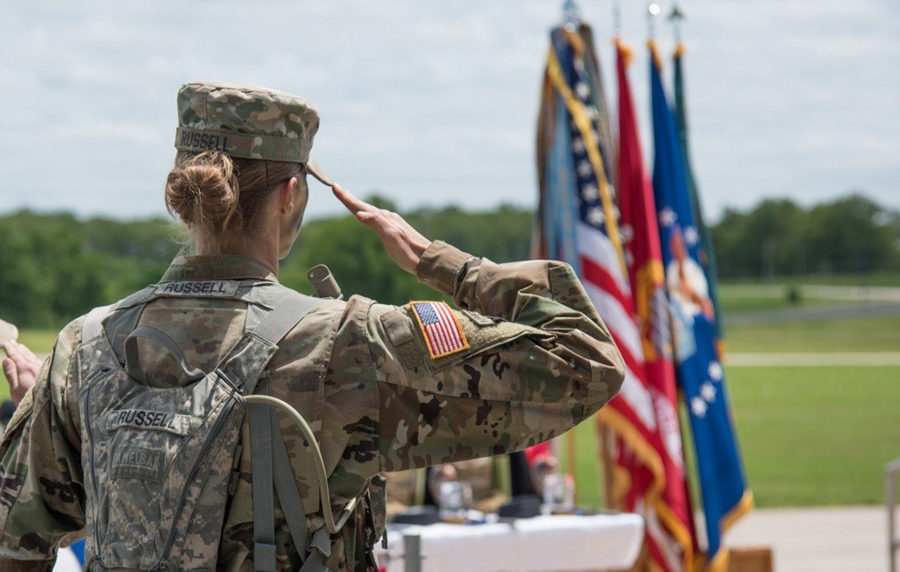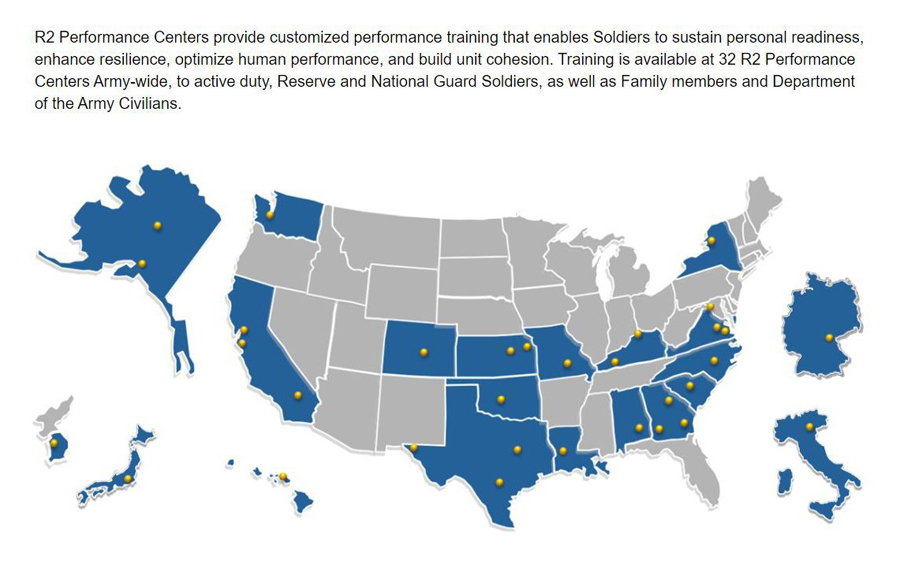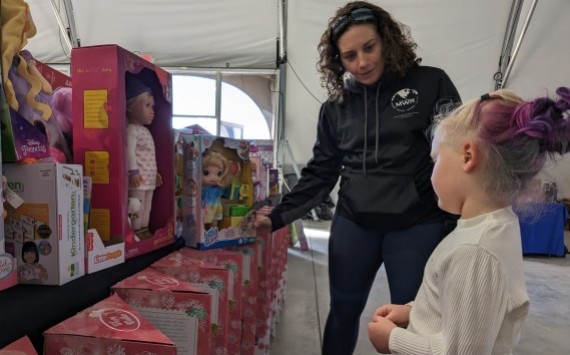Maintaining physical readiness for many Soldiers is as easy as stopping by the gym, but when it comes to mental health things aren’t always as simple.
From individual Soldiers to entire units, Ready & Resilient Performance Centers, or R2PCs, are at the ready for Soldiers by providing specialized training to help sustain personal readiness, enhance resilience, optimize human performance, and build unit cohesion.
“Soldiers need to build their mental strength like they do their physical strength,” said Master Sgt. Kevin Edmondson, Ready and Resilient Integration and Training Division noncommissioned officer in charge.
Their mission is part of the Army’s new health approach to overall readiness, said Casey Olson, chief of training for the Army Resilience Directorate.
“Our intent going forward is to align embedded performance experts [and] cognitive enhancement specialists to support the Holistic Health and Fitness initiative,” she added.
In the last 10 years, more than 30 performance centers across the Army have equipped upwards of 49,000 master resilience trainers, or MRTs, with tools needed to conduct resilience training at the unit level, and serve as advisers to commanders, Edmondson said.
Through the Master Resilience Trainer Course, Soldiers undergo an 80-hour, 10-day course to better help Soldiers, Family Readiness Group spouses, and Army civilians.
Over time, units with qualified MRTs have seen notably lower rates of drug and alcohol abuse and mental health issues like anxiety, depression and post-traumatic stress disorder, compared to units without MRTs, Edmondson said.
“We also see that [Soldiers] who go to our bystander intervention training are more likely to intervene — and have intervened — in the following months after taking our intervention training,” Olson said.
For Soldiers without a local R2PC, “they can always call one of the performance centers that are closer to them to get a virtual assistant or potentially plan on support and a planned timeframe,” Olson said.
To reach the Fort Irwin R2PC, call 760-380-7887.
These centers staff experts “similar to people in the field of sports and performance psychology,” Edmondson said. On par with, for example, performance experts in the NFL, NBA, MLB, and their sole mission is helping Soldiers.
“We know that our Soldiers are essentially athletes,” he added. “But unlike athletes, they are not on a seasonal basis. Our athletes are professionals on a 365-day basis.”
In addition, the experts have master’s degrees and doctorates in an array of backgrounds, Olson said, like sport and performance psychology, kinesiology, counseling, education, and more. “We pull from some of the top programs across the country to ensure that we have the best of the best when it comes to the performance experts.”
However, they are not clinical doctors offering diagnoses, Edmondson said. “They are there to be a force multiplier to support the Soldiers in continuing to grow and strengthen their skills.”
These services are available to individual Soldiers who walk-in, or entire groups who need various training.
Types of training
As diverse as the experts’ backgrounds are, so are the readiness opportunities they offer.
Both individual and organizational assistance with the Army Combat Fitness Test, competition and promotion board guidance, and help with mastery badges, lethality training, and more is available, Edmondson said.
To ensure overall readiness and deploy ability, the centers also offer bystander intervention and stress management training, he said. In addition, the centers offer academic help, not only to Soldiers but also to their families.
Other types of training include Engage training for family members, which is Army-approved suicide prevention and awareness training, among other options for military families.
The Army’s Child and Youth Services personnel have also been specially trained by R2 Performance experts to facilitate resilience training to adolescents. The training sessions are meant to empower individual Soldiers, families, and civilians, Edmondson said.
“We are attempting to provide our Soldiers, family members, and civilians with more tools in their kitbag, so they can not only become more self-aware and self-regulatory but also identify different things in their battle buddies and offer help and assistance to each other,” Olson said.













